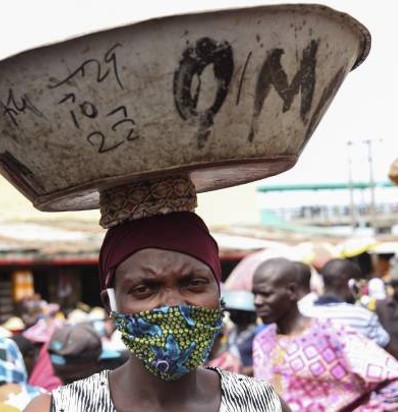To better understand the gendered impacts of the COVID-19 pandemic, the Gender and COVID-19 project organized this webinar, ‘Exploring the impact of COVID-19 on women in Bangladesh, Kenya and Nigeria.’ Lynda Keeru and Kate Hawkins feedback on emerging evidence.
In the wake of the COVID-19 epidemic and the subsequent measures put in place, the world has faced significant challenges. Undoubtedly these challenges have not been gender neutral. In the webinar we heard that in many settings women are more likely to incur job losses, suffer mental illnesses, report higher gender-based violence and even experience challenges in getting vaccinated. Women are likely to report food insecurity in households and their childcare burden has increased.
Researchers spoke alongside policy makers from Bangladesh, Nigeria and Kenya and provided qualitative and quantitative evidence on the economic, social and health impacts of COVID-19 to support real-time decision-making. A snapshot of findings is outlined below.
Bangladesh
We heard that in some contexts like informal settlements, it was practically impossible to execute some of the measures for containing COVID-19. For instance, maintaining social distance while fetching water at a common water point is close impossible as the settings are already very crowded, and this puts women at higher risk. Selim Kabir told 23-year-old Arifa’s story who served herself very little food and gave her husband the biggest share in order to keep him happy. She voiced the fact that she was afraid that if she didn’t serve him enough food, he would go out to find it and possibly have an affair with someone. Arifa’s case reflects the realities of many other women, because feeding of members of the family is in many households a responsibility of women. This is coupled with the increased household burdens.
Kenya
In Kenya, women from different households reported a reduction in household income and the depletion of savings, and household members could not afford some of the basic necessities such as food and rent. The pandemic also had a severe negative impact on their mental and social wellbeing. The closure of schools and other educational institutions affected the development and wellbeing of the young, as it contributed to an increase in alcohol and drug use, truancy, school dropout, teenage pregnancies and abortions, sex work, radicalization by gangs and early marriage. Some girls confessed that their parents asked them to go out and get money due to the reduction in income at home. An increase in gender-based violence was not just reported among adults, but also among children and the perpetrators were close family members and neighbors. Children unfortunately also reported witnessing intimate partner violence in their homes.
Nigeria
The Nigeria presentation revealed that chores like cooking, cleaning, teaching children and childcare fell on women and girls. There was reported increased workload for women and girls compared to men and boys with 11% of female respondents reporting getting support with household responsibilities from their partners versus 33% of married male respondents stating that they received support from their partners. A swap in roles was also observed with many women becoming breadwinners, particularly in the informal sector. Noteworthy, in Nigeria, there were no major differences between men and women on vaccines. Religion and social beliefs however influenced the vaccine perceptions especially for women. Most respondents felt that the government’s response to COVID-19 was inadequate; brewing a level of distrust for future policies.
Discussion
Mofijul Islam – Deputy Program Manager, Directorate General of Health Services, Ministry of Health and Family Welfare in Bangladesh – noted that women in Bangladesh are very hardworking but lag behind because of socio-economic structures like gender discrimination and harmful norms, lack of access to social security practices and other limitations. Dr Ayoola – the Permanent Secretary with the Lagos State Ministry of Youth and Social Development in Nigeria – reflected that the qualitative research provided in the webinar was very eye-opening and informative and useful in bringing to the table issues that were often overlooked and missed by quantitative studies. For example, quantitative data shows more men getting seriously ill with COVID-19 but the qualitative studies brought to the fore the direct and indirect impacts of COVID-19 on women.
This research is significant in showing the importance of integrating gender into programmes and policies, while highlighting the existing gaps in the commitment of advancing gender equality and women’s issues in pandemics. Keep an eye on the site for future updates.
Speakers:
Atonu Rabbani: Associate Scientist, BRAC James P Grant School of Public Health, BRAC University. Associate Professor, Department of Economics, Dhaka University
Anne Ngunjiri: Senior Technical Advisor, LVCT Health, Kenya
Selima Kabir: Assistant Research Coordinator, BRAC James P Grant School of Public Health, BRAC University
Amy Oyekunle: Gender consultant, Nigeria






